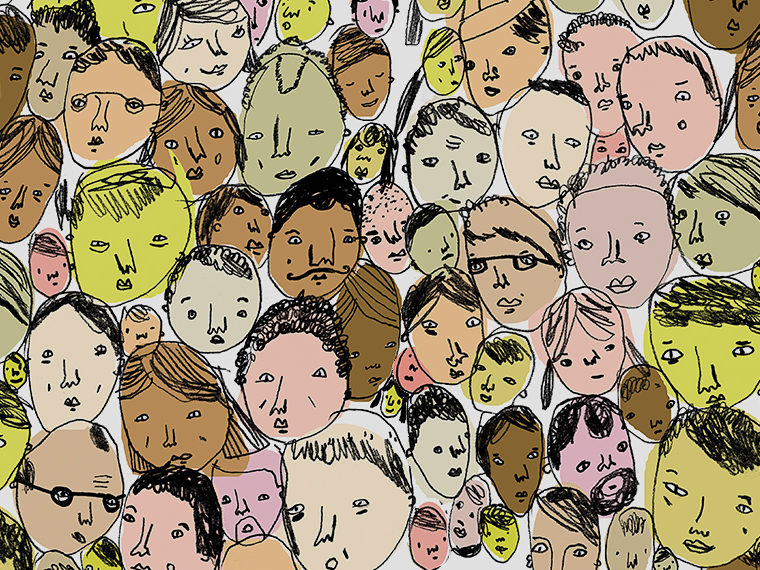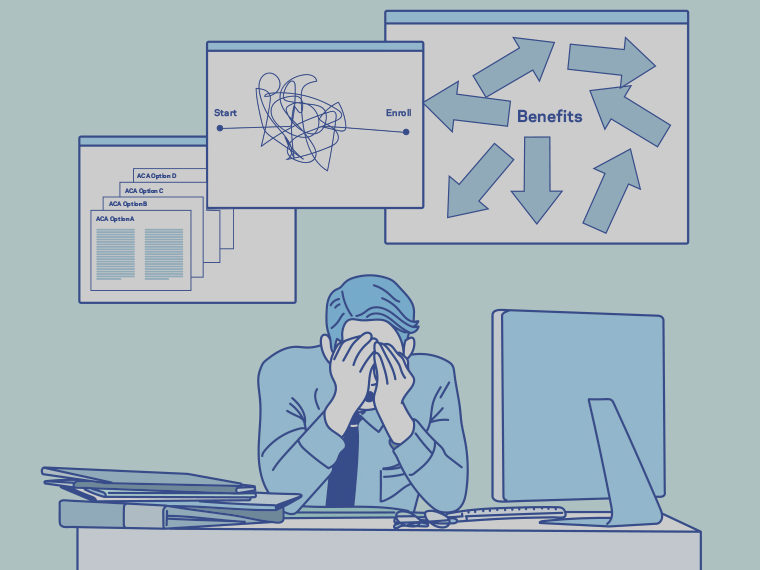Chinese garment workers and U.S. university employees, worlds apart, react similarly when allowed a bit of self-determination
Our general attitudes toward authoritarianism and justice have long been viewed as a function of what our parents exposed us to as children, and the broader social and political norms across the culture we live in. Once established, our world view is thought to be somewhat intractable, prone to change only in the face of large societal shifts, such as the rise of fascism in Europe that began in the early 20th century.
At work, our attitudes toward local authority and justice have been shown to be more malleable. When work structures introduce elements of participatory democracy — relying less on top-down power plays — workers typically respond with a greater sense of agency and rising sense of workplace justice.
And research by UCLA Anderson’s Sherry Jueyu Wu and Princeton University’s Elizabeth Levy Paluck suggests that once workplace agency is gained, people begin to think differently about the wider world as well; in this case, in two distinct situations: a garment factory in China and a U.S. university.
Opt In to the Review Monthly Email Update.
Wu and Paluck establish that a short-term group intervention at work that boosts one’s voice in a group context triggers a greater sensitivity toward societal authoritarianism and justice and promotes participation behavior outside of work.
In a first experiment, the authors enlisted more than 1,750 workers at a garment factory in China for a six-week experiment. A control group continued to attend the small weekly 20-minute staff meetings that were already a part of the factory’s system. These meetings were dominated by a supervisor wielding absolute top-down authority by lecturing on best practices and doling out weekly deliverables for the group and each individual.
Other workers were introduced to a very different weekly meeting. Their supervisor was shunted to the side and told to be quiet. Research assistants served as facilitators with a mandate to create a more democratic vibe. The workers were encouraged to discuss among themselves how best to approach the work. At each of these “participatory” meetings workers were told the group’s deliverables for the week, but then were asked to create — and share — their personal goals for the week.
Four weeks after the study concluded, the workers were asked to weigh in on a series of statements designed to measure the level of their buy-in to authoritarianism and their sense of justice in the general society. On a 6-point scale (1 = disagree, 6= agree), they were asked their reaction to statements that included “Obedience and respect for authority are the most important virtues children should learn” and “By and large, people deserve what they get.” They were also asked the extent to which they follow news and politics.
Across all questions related to general authority, the overall score was 4.05, a slight bias to respecting authority. But those who tasted the freedom of agency in the participatory meetings were less inclined to buy in (average score of 3.87) compared to the control group (4.2). The effect size was about one standard deviation on the survey measurement scale when it was measured four weeks after the end of the experiment.
Perceptions of a just world held to the same pattern. The workers who were given a voice in their meetings were less inclined to believe in a just world than the control group (3.86 versus 4.10).
And the different vibe at work seems to have affected how workers in the participatory group navigated their way around the world outside of the factory. Workers in the interactive meetings reported a higher interest in participation in politics (4.06) compared to the control group (3.8), and reported they were more engaged in family and social life (4.54 versus 4.41).
Americans might be tempted to think of the garment workers as timid, living in a far more authoritarian society than do workers in the U.S., where common perception at least is that people speak up about their concerns and aspirations. And so perhaps a bit of empowerment would have an outsized effect on the garment workers’ wider view of authority.
But that stereotyping might not be valid. Wu and Paluck ran a similar experiment at a U.S. university, roping in 172 staff employees from 32 academic departments. Here, the control group maintained their customary meeting formats. A separate group, however, followed “a participatory meeting protocol that we designed as a very close translation of the Chinese participatory meeting protocol.”
Would the American workers be less affected by the invitation to speak up? Actually, the results were very similar to those in the garment factory across the globe: Administrative workers who were encouraged to participate in their weekly group meetings also reported less buy-in for authority and a lower perception of a just world.
In their China and U.S. studies, the researchers note that the “regular opportunity to voice out one’s opinion is the common factor between these two drastically different settings.” Regardless of one’s default norm, encouraging participation at work seems to play out in one’s worldview.
Featured Faculty
-
Sherry Jueyu Wu
Assistant Professor of Management and Organizations and Behavioral Decision Making
About the Research
Wu, S.J., & Paluck, E.L. (2019). Participatory practices at work change attitudes and behavior toward societal authority and justice.






